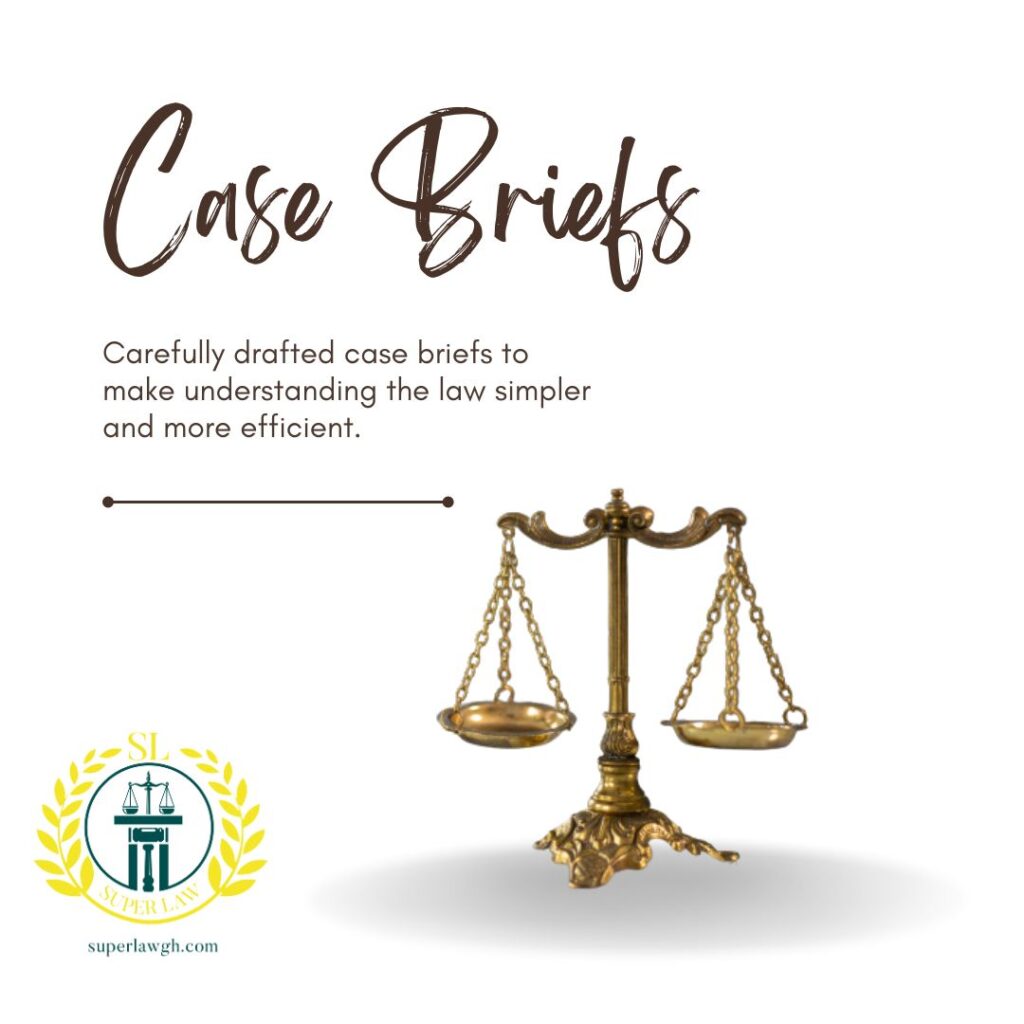New Patriotic Party v. Attorney-General[1] (31st December Case)
Statement of fact: The Government of the National Democratic Congress on 19th December 1993 announced the observation of 31st December 1993 as a public holiday under an existing law, the Public Holidays Law, 1989 (PNDCL 220). This holiday was in commemoration of the 31st December 1981 revolution which overthrew the Constitution, 1979 and the Government of Dr Hilla Limann.
This invoked the wrath and indignation of interested sections of the public who were vehemently opposed to coups. The New Patriotic Party, a registered political party, issued a writ invoking the original jurisdiction of the Supreme Court under articles 2(1) (b) and 130 (1) of the Constitution, 1992 under rule 45 of the Supreme Court Rules, 1970 (C.I. 13).
The plaintiff sought a declaration that the public celebration of the overthrow of the legally constituted Government of Ghana on 31 December 1981, and the financing of such celebration from public funds is inconsistent with or in contravention of the letter and spirit of the Constitution, 1992 and more particularly articles 3(3), (4), (5), (6) and (7), and 35(1) and 41(b) thereof.
The plaintiff also sought an order directing the Government of Ghana to cancel all preparations for the celebration of the overthrow of the legally constituted Government of Ghana on 31 December 1981 aforesaid and to refrain from carrying out any such celebration financed from public funds.
Thus, the plaintiff challenged the constitutionality of the celebration of a coup d’etat with the argument that it offended the letter and spirit of the Constitution, 1992.
The defendant argued that the court cannot inquire into the legality or constitutionality of the event of 31 December. Secondly, that the orders sought by the plaintiff, especially in its claim (2), are in the nature of an injunction against the President or the State, and that this court has no jurisdiction to issue such an injunction. Thirdly, that the question whether 31 December should be celebrated or not is a political question, which this court is not entitled to decide. This should be left to coordinate arms of government to deal with.
The defendant, on the other hand, contended that questioning the constitutionality of the celebration of 31st December as a public holiday amounted to the questioning of the constitutionality of the 31st December 1981 coup. This kind of exercise is against section 34 of the Transitional Provision of the Constitution, 1992.
- Whether or not the Court had jurisdiction to adjudicate the matter?
- Whether or not the Court could issue an injunction against the President or the State?
- Whether or not the case is a political one which ought not to be entertained by this Court?
- Whether or not the Directive Principles of State Policy are justiciable?
- Whether or not the celebration of 31st December is inconsistent with the Constitution, 1992?
- The Court has jurisdiction to entertain the present matter.
- This Court can issue injunction against the President and even Parliament.
- The Supreme Court ought to entertain the case.
- The Directive Principles of State Policy are justiciable.
- Celebration of 31st December is inconsistent with the Constitution, 1992.
Reasoning:
The defendant’s argument that the action of the plaintiff sought to question the constitutionality of the coup of 31st December 1981 is untenable. Coup by itself is an illegal act and as such no one would spend precious time questioning that which was an illegality and treasonable.
The reliefs sought do not question the legality or otherwise of the 31st December 1981 coup. The reliefs sought to question the anniversary of 31st December with State money beyond 7th January 1993. To this, the Court has jurisdiction to entertain the case of the plaintiff.
Also, the Court is clothed with the power to issue injunctions against the President and even against Parliament. Pursuant to Articles 1 and 2 of the Constitution, 1992, once an Act offends the Constitution, it is null and void. Should the President or the executive enforce or obey it, the court has jurisdiction to restrain him or her. The Supreme Court is the ultimate interpreter of the Constitution, 1992. Issues of constitutional interpretation are justiciable only by the Supreme Court. The Constitution in its entirety is justiciable. If there is a portion that is not justiciable, the Constitution would have said so. Again, article 2(1) of the Constitution, 1992 says inconsistency with or contravention of a provision of the Constitution; if there were exceptions, it would have been mentioned. By virtue of the tradition (because there was none contradicting) of Constitution, 1979 which had Chapter 4 justiciable, the Chapter 6 of the Constitution, 1992 is also justiciable. The Directive Principles of State Policy is therefore justiciable.
Celebrating 31st December will be an insidious and surreptitious way of undermining the Constitution. Laying out money and resources to play up the idea of coups is well-knowing to undermine the Constitution, 1992 which frowns on coups. By precedent, coup days declared as public holidays were abolished with successive military or civilian governments so by logic, 31st December should not be carried into the new dispensation after 7th January 1993. Those who were pardoned for the coup cannot turn back and celebrate what for which they had been pardoned. This offends, if not the letter, the spirit or the conscience of the Constitution, 1992. As unjustifiable as the celebration of 31st December is, any public money spent is also unjustifiable.
What section 34 of the Transitional Provision of the Constitution, 1992 does is to give pardon to all coup makers even before 1981 so if we are to celebrate 31st December then all the other military coups must be celebrated as such.
Per Adade, JSC (Majority view) at pp. 60- 66:
From the reasons given, I am satisfied that the objection to the court’s jurisdiction is, with respect, misconceived. First, the action here does not seek to question the legality of the 31 December coup. Indeed, it is unnecessary for anyone to mount an action for that purpose. A coup d’etat is, by definition, an illegal act; it is treason. It is therefore needless, and a waste of everybody’s time, for anyone to ask a court to declare that an act admitted to be a coup d’etat, is illegal.
Section 34 of the transitional provisions of the Constitution, 1992 relied on for the argument, takes the fact of the coup and its illegality as data. It is on the basis of this data that the immunity is conferred by that section. The section does not seek to stop anyone from questioning its legality. No Illegality is presumed. What the section does is to free the persons covered by it from punishment or from paying compensation to anyone. Even so, in a disputed case, it is for the court to determine whether the defendant is covered by the section or whether the relief sought should or should not be granted, having regard to the tenor of section 34 of the transitional provisions of the Constitution, 1992. It is a misconception to allege that the suit here seeks to question legality or otherwise. The action is not harking back to 31 December 1981, and asking the court to declare the coup illegal.
It is looking forward from 7 January 1993, and saying that whatever the nature of the event, legal or illegal, its anniversary after 7 January 1993 should not be celebrated out of public funds and other resources. In particular, the action here does not relate to the overthrow of the Government of the Third Republic, nor to the abrogation of the Constitution, 1979. Accordingly, section 34(2) of the transitional provisions of the Constitution, 1992 is of no assistance to the defendant. Then also it must be remembered that questions of human rights tend to have large components of political issues. Yet in our Constitution, 1992 these questions are reserved for or to the High Court in the first instance “without prejudice to any other action that [may be] lawfully available” to a litigant: see article 33 of the Constitution, 1992.
Similarly, chieftaincy disputes almost always involve local, and often national, politics. But these disputes are cognisable only by “”chieftaincy tribunals”” in the first instance; the Supreme Court coming in only as a court of last resort: see chapter 22 of the Constitution, 1992.The conclusion is inescapable, that in this country we have no doctrine of “political question” such as exists in the United States. What we have is a written Constitution, 1992 to be interpreted and enforced, with the result that in Ghana, courts and tribunals much lower in the hierarchy, than the Supreme Court may lawfully decide cases which may involve “political questions”. In further reaction to the defendant’s argument that the issue is a political one, it must be understood that the Constitution, 1992 itself is essentially a political document. Almost every matter of interpretation or enforcement which may arise from it is bound to be political, or at least, to have a political dimension. Therefore to refuse to do a constitutional case on the ground that it is political is to abdicate our responsibilities under the Constitution, 1992 and to breach, in particular, articles 2 and 3 thereof. Thus the invitation to decline jurisdiction on that account is an invitation to this court to act unconstitutionally, which invitation must itself be unconstitutional, as it cannot but be subversive of the Constitution, 1992. I must reject that invitation.
There is another matter which must be disposed of along the way. As stated earlier, the plaintiff relies, inter alia, on articles 35 and 41 of the Constitution, 1992. Both these articles come under chapter 6 of the [p.66] Constitution, 1992 titled: “”The Directive Principles of State Policy. It has been maintained in certain quarters that these directive principles are not justiciable, and therefore cannot avail the plaintiff. I am aware that this idea of the alleged non-justiciability of the directive principles is peddled very widely, but I have not found it convincingly substantiated anywhere. I have the uncomfortable feeling that this may be one of those cases where a falsehood, given sufficient currency, manages to pass for the truth.I do not subscribe to the view that chapter 6 of the Constitution, 1992 is not justiciable: it is. First, the Constitution, 1992 as a whole is a justiciable document. If any part is to be non-justiciable, the Constitution, 1992 itself must say so. I have not seen anything in chapter 6 or in the Constitution, 1992 generally, which tells me that chapter 6 is not justiciable. The evidence to establish the nonjusticiability must be internal to the Constitution, 1992, not otherwise, for the simple reason that if the proffered proof is external to the Constitution, 1992, it must of necessity conflict with it, and be void and inadmissible: we cannot add words to the Constitution, 1992 in order to change its meaning.
Secondly, notice that article 1(2) of the Constitution, 1992 speaks of inconsistency with “any provision of this Constitution, 1992”; and article 2(1) of the Constitution, 1992 makes reference to inconsistency with or contravention of “a provision of this Constitution.” None of these articles expresses an exception in favour of chapter 6. Does it not follow that chapter 6 too, along with the rest of the Constitution, 1992, is in the contemplation of articles 1 and 2 of the Constitution, 1992? Thirdly, the very tenor of chapter 6 of the Constitution, 1992 supports the view that the chapter is justiciable.
[1] New Patriotic Party v. Attorney-General [1993- 94] 2 GLR 35 92


